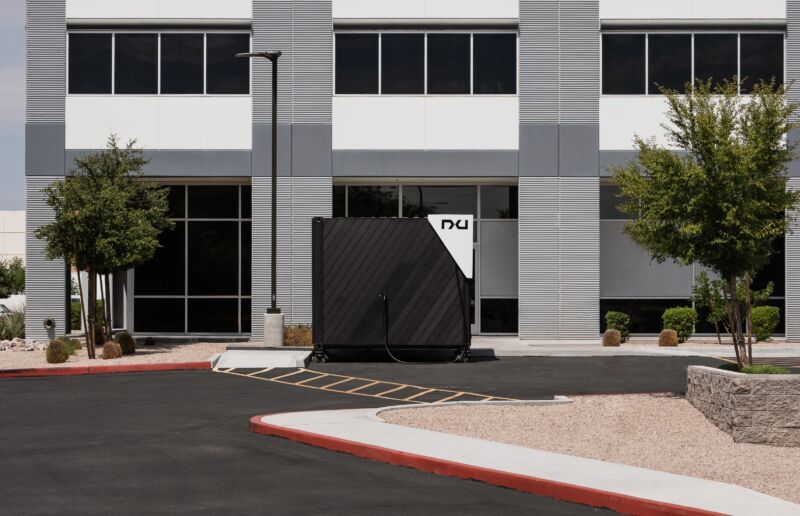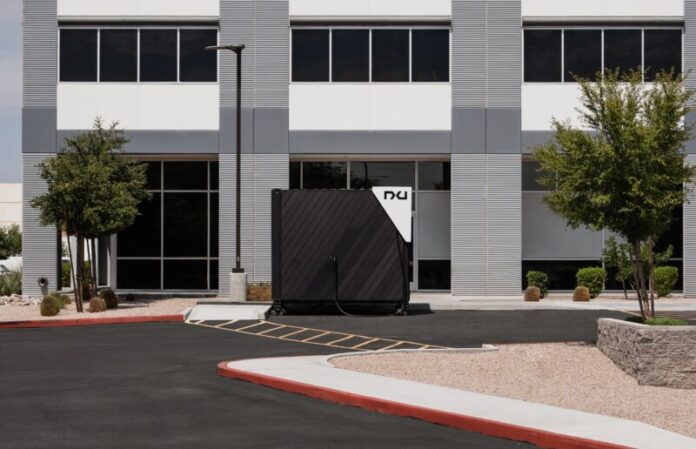
Enlarge / This cube is Nxu's new charging system, designed to handle up to 4.5 MW of bidirectional power. You can test it out in Mesa, Arizona, between September 28 and October 1, 2023. (credit: Nxu)
Electric vehicles have matured over the past decade to the point where, with few exceptions, they're now a superior alternative to internal combustion engines. They're quiet, produce instant torque, and have roughly triple the energy efficiency of a hydrocarbon-burning powertrain. The problem is that recharging an EV battery takes longer than refilling a fuel tank with liquid fuel. A lot longer—even the fastest fast-charging EV still needs 18 minutes to get from 10 to 80 percent state of charge, with 30 to 40 minutes being more common for most EVs on sale today.
Those long charge times are one of the driving forces behind the interest in hydrogen fuel cell EVs, despite the terrible efficiency losses involved in making and using that fuel versus simply storing electricity in a battery. But there are other solutions being pursued. Currently, the most powerful fast chargers an EV driver might encounter in the wild max out at 350 kW—still more than any EV I can think of is capable of accepting. But even more powerful DC chargers are in the works, like the one that Nxu is deploying in Arizona.
"EV users are looking for charging solutions that are reliable, consistent, and convenient. Today, they often only get one of those three, if any at all, when they charge their vehicles," said Nxu founder, chairman, and CEO Mark Hanchett. "Nxu aims to deliver on all three, starting with our proprietary, powerful Nxu One Charging System. We anticipate a very favorable response from those who experience our charging technology, and we can’t wait to put charging power back in the hands of EV drivers," Hanchett said.
Read 4 remaining paragraphs | Comments
Ars Technica - All contentContinue reading/original-link]




